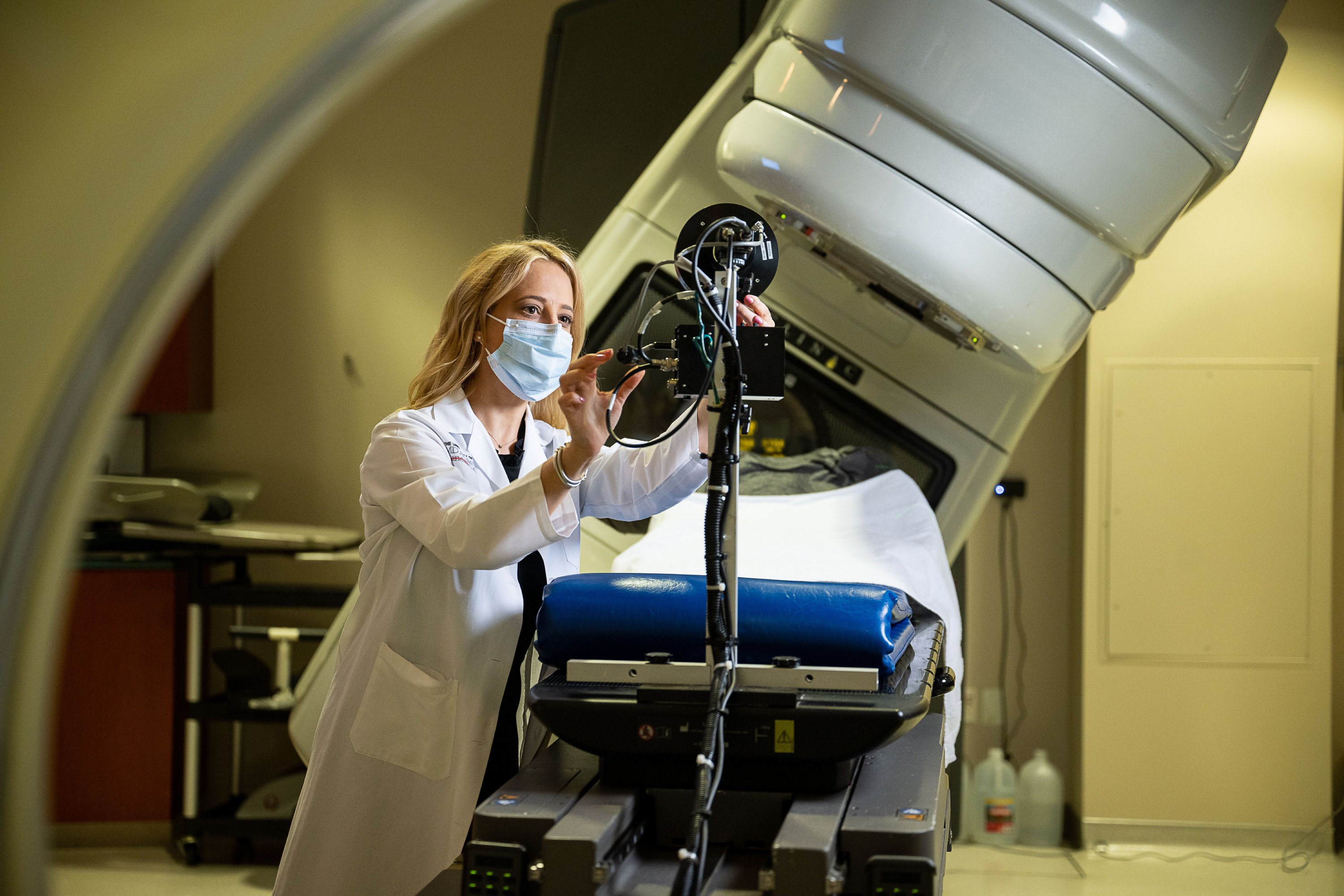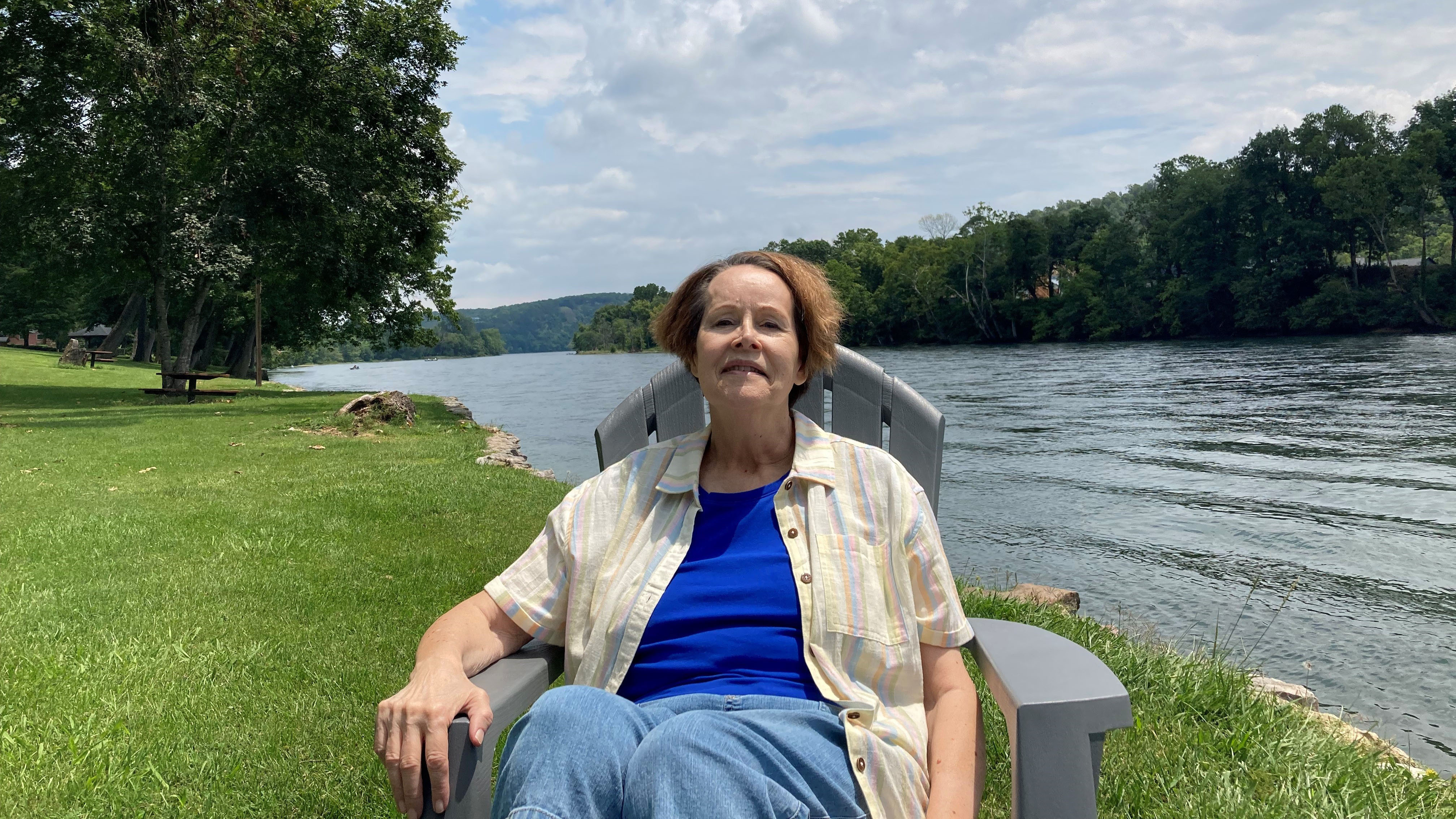- Diseases
- Acoustic Neuroma (14)
- Adrenal Gland Tumor (24)
- Anal Cancer (66)
- Anemia (2)
- Appendix Cancer (16)
- Bile Duct Cancer (28)
- Bladder Cancer (68)
- Brain Metastases (28)
- Brain Tumor (228)
- Breast Cancer (716)
- Breast Implant-Associated Anaplastic Large Cell Lymphoma (2)
- Cancer of Unknown Primary (4)
- Carcinoid Tumor (8)
- Cervical Cancer (154)
- Colon Cancer (164)
- Colorectal Cancer (110)
- Endocrine Tumor (4)
- Esophageal Cancer (42)
- Eye Cancer (36)
- Fallopian Tube Cancer (6)
- Germ Cell Tumor (4)
- Gestational Trophoblastic Disease (2)
- Head and Neck Cancer (6)
- Kidney Cancer (124)
- Leukemia (344)
- Liver Cancer (50)
- Lung Cancer (288)
- Lymphoma (284)
- Mesothelioma (14)
- Metastasis (30)
- Multiple Myeloma (98)
- Myelodysplastic Syndrome (60)
- Myeloproliferative Neoplasm (4)
- Neuroendocrine Tumors (16)
- Oral Cancer (100)
- Ovarian Cancer (170)
- Pancreatic Cancer (166)
- Parathyroid Disease (2)
- Penile Cancer (14)
- Pituitary Tumor (6)
- Prostate Cancer (144)
- Rectal Cancer (58)
- Renal Medullary Carcinoma (6)
- Salivary Gland Cancer (14)
- Sarcoma (236)
- Skin Cancer (294)
- Skull Base Tumors (56)
- Spinal Tumor (12)
- Stomach Cancer (60)
- Testicular Cancer (28)
- Throat Cancer (90)
- Thymoma (6)
- Thyroid Cancer (98)
- Tonsil Cancer (30)
- Uterine Cancer (78)
- Vaginal Cancer (14)
- Vulvar Cancer (18)
- Cancer Topic
- Adolescent and Young Adult Cancer Issues (20)
- Advance Care Planning (10)
- Biostatistics (2)
- Blood Donation (18)
- Bone Health (8)
- COVID-19 (360)
- Cancer Recurrence (120)
- Childhood Cancer Issues (120)
- Clinical Trials (622)
- Complementary Integrative Medicine (24)
- Cytogenetics (2)
- DNA Methylation (4)
- Diagnosis (226)
- Epigenetics (6)
- Fertility (62)
- Follow-up Guidelines (2)
- Health Disparities (14)
- Hereditary Cancer Syndromes (122)
- Immunology (18)
- Li-Fraumeni Syndrome (8)
- Mental Health (118)
- Molecular Diagnostics (8)
- Pain Management (64)
- Palliative Care (8)
- Pathology (10)
- Physical Therapy (18)
- Pregnancy (18)
- Prevention (888)
- Research (388)
- Second Opinion (74)
- Sexuality (16)
- Side Effects (602)
- Sleep Disorders (10)
- Stem Cell Transplantation Cellular Therapy (216)
- Support (404)
- Survivorship (322)
- Symptoms (186)
- Treatment (1770)
Metastatic breast and spine cancer survivor: ‘I’m living into the cure’
5 minute read | Published June 21, 2024
Medically Reviewed | Last reviewed by an MD Anderson Cancer Center medical professional on June 21, 2024
“I have an illness, not a terminal diagnosis,” says Lisa Ordmandy. Despite her metastatic breast cancer diagnosis, Lisa remains optimistic. Her motto is “Live into the cure.”
Lisa, now 66, was first diagnosed with breast cancer in 2007. Following treatment at another hospital, her doctors said she wouldn’t have a recurrence.
But a few years later, Lisa tripped on her stationary bicycle and fell. “I call it my bicycle accident – it’s so much cooler than what happened,” she laughs. “As I was falling, I caught myself, but I heard a ‘crunch’ sound. I later found out that my C2 vertebra had fractured.”
Lisa sat down to compose herself. “The pain started, but I could still feel everything,” she recalls. She later learned that most people who fracture that spinal bone do not survive; of those who do, most become paralyzed. “I am forever grateful to be in that tiny percentage that could walk away with no damage,” she says.
Her husband drove her to the ER. Still, even though she could walk, she was in severe pain. At a local hospital, doctors identified the fracture and believed it was caused by a recurrence of her breast cancer. This time, the cancer had settled in her vertebra. “That’s when my metastatic journey began,” says Lisa.
MD Anderson was the only choice for metastatic breast and spine cancer treatment
When Lisa found out the cancer had returned, she was determined to go to MD Anderson. “Once I had a recurrence, and it was metastatic, I wanted to be at MD Anderson for sure,” she emphasizes. Why? “Because they’re the top-rated cancer facility in the United States. They say it matters where you go first; I went there first.”
Lisa met with Claudio Tatsui, M.D., a neurosurgeon who specializes in spinal procedures. He suggested waiting on surgery. Lisa began taking palbociclib, a targeted therapy used to treat breast cancer. Under the care of breast medical oncologist Sausan Abouharb, M.D., Lisa remained stable for five years and lived a normal life.
In 2020, Lisa was hiking when she tripped and fell. “I noticed after that I had a little hip problem,” she recalls. An MRI revealed a collapsed L3 vertebra. “Dr. Tatsui said it was stable, and we continued to watch it.”
But after another fall in late 2023, things got worse. “My leg collapsed, and I landed splat on the sidewalk. So I thought, ‘Something is really wrong here,’” she recalls. An X-ray at MD Anderson revealed a hairline fracture; doctors thought it would heal on its own.
But the pain kept increasing. “It got to the point where I was crawling to the toilet, weeping. This was amazing pain,” remembers Lisa.
She knew something wasn’t right, so she reached out to Tatsui and Abouharb. They advised her to come to MD Anderson’s Acute Cancer Care Center immediately, where doctors found that her spine was fractured at the L3 vertebra.
Surgery preserves ability to walk
“Dr. Tatsui immediately put me in the hospital. He was very cautious and protective, which I really appreciate,” recalls Lisa. Tatsui operated on her spine in November 2023.
He explained exactly what condition her spine was in to ensure she understood the complex process. “He takes the time to show me pictures,” she says, alluding to the 3D imaging MD Anderson’s spine specialists use to visualize spine tumors and plan surgeries. These technologies help our surgeons plan and execute surgeries more precisely. Tatsui kept Lisa informed at every step about her condition and surgical treatments. “He showed me pictures that indicated my spinal cord was quite dented, like a V shape,” Lisa says. “He fixed me up! I’ve got 2 titanium rods in my back and 8 screws, but I can walk.”
It took about 10 weeks for the pain to ease up. Lisa used a walker for several weeks, then a cane. Today, thanks to the care she received from Tatsui and his advanced practice nurse, Queena Gonzalez, she can walk unassisted. “I’m careful, but I would attribute my ability to walk to Dr. Tatsui and Queena. I can tell they care about me,” says Lisa, who recently started physical therapy. “Once that nerve finally relaxed, I was normal again.”
Finding comfort in MD Anderson
Once again, Lisa is moving – this time, closer to MD Anderson. “A large part of the decision was because Dr. Abouharb is looking for clinical trials for me,” she says. Her doctors will need to monitor her condition closely if she participates in a clinical trial, which means more frequent appointments.
Lisa also continues to see Abouharb regularly. “She moved to MD Anderson League City, and I followed her there,” says Lisa. “I have all my scans at MD Anderson’s Texas Medical Center Campus, but it’s worth it to have the relationship. She’s been with me for nine years, and it’s comforting to be in such good hands.”
A positive outlook
Lisa attributes her recovery to her faith and her outlook. “Positive outlook is a whole lot of it,” she says. “You have to have a lot of faith. I live on prayer, and I’m not reluctant to ask people to pray for me.”
Lisa also has faith in the scientists and researchers working on new cancer treatments. “If they treat me long enough, I’ll be here when the cure comes,” she says.
For now, she’s living her life to the fullest. “Metastatic cancer is more like a chronic illness now,” she says. “It’s like whack-a-mole: when something comes up, you whack it down. Dr Tatsui whack-a-moled that spot on my spine down.”
What would she tell someone else with metastatic cancer? “Go to MD Anderson first. It matters where you go first; that’s what the billboard says.”
Request an appointment at MD Anderson online or call 1-844-758-2226.

It’s comforting to be in such good hands.
Lisa Ordmandy
Survivor





